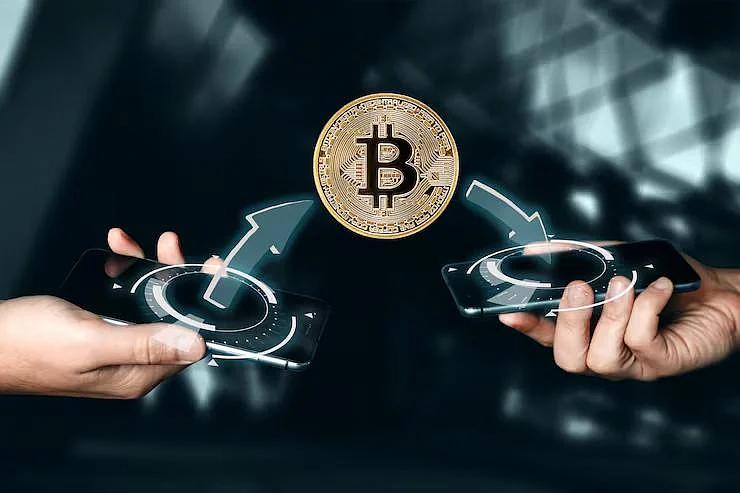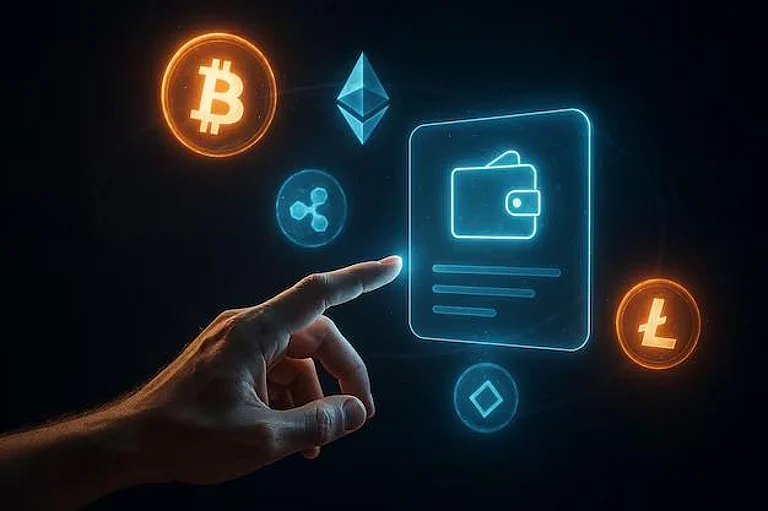One of the most critical aspects of cryptocurrency ownership is security. Whether one trades short-term or holds assets in the long term, keeping your money safe from hacking and theft is crucial. While convenience is offered by cryptocurrency exchanges when it comes to trading, they may not be the best location to store your digital wealth.
That is where cold wallets come in — an off-line storage system that will safeguard your cryptocurrencies from harms that exist across the internet. The article that follows discusses what cold wallets are, how they work, why they are important to any person who is dealing with cryptocurrency exchanges, and why they are better than hot wallets.
Understanding Cold Wallets
A cold wallet, or cold storage, is a cryptocurrency wallet with its private keys stored offline completely. This is just a wallet that is offline, thus reducing considerably the threat of hacking via the internet, phishing, or malware.
Private keys are passwords that enable you to make use of your cryptocurrency holdings. If these keys are hacked, your funds are in the mercy of hackers who have an instant system to steal them. Cold wallets keep these keys out of an online server's reach, ensuring zero-compromise security for long-term asset holding.
Popular types of cold wallets are:
Hardware wallets – Offline devices like USB drives specially used to store crypto holdings.
Paper wallets – Printed QR code or handwritten key which would be scanned when needed.
Air-gapped computers – Offline computers specifically used to store crypto.
Why Cold Wallets Are Important to Cryptocurrency Exchanges
Most of the investors make use of cryptocurrency exchanges for selling, purchasing, or trading virtual currencies. While exchanges are convenient and liquid, they are a cybercriminal's favorite target as well. Over the years, there have been some colossal exchange hacks that have lost billions of dollars.
Cold wallets are a security bulwark between your assets and the badness of the internet. By withdrawing your crypto from an exchange into a cold wallet, you're in control of your assets — so if your exchange gets hacked or shut down, your assets remain secure.
Primary Benefits of Cold Wallets in Relation to Cryptocurrency Exchanges
Enhanced Security: Private keys stay off-line and free from cyber attacks.
Ownership Control: Keys in your pocket, not the exchange.
Long-term Storage: For rare traders.
Protection against Exchange Failures: Saves assets from being lost because of exchange insolvencies or shutdowns.
Hot Wallets vs. Cold Wallets — A Quick Comparison
Feature | Hot Wallets | Cold Wallets |
Connection | Always connected to the internet | Completely offline |
Security Level | Vulnerable to hacks | Highly secure |
Accessibility | Easy for frequent transactions | Best for long-term storage |
Examples | Exchange wallets mobile apps | Hardware or paper wallets |
Control | Keys often held by exchange | Full user ownership |
How Cold Wallets Operate
The primary function of a cold wallet is to create and hold private keys offline. Here's the basic process:
Generate Wallet Offline:
The wallet is initialized in an offline system so there is no internet exposure during installation.
Private Key Generation:
An individual private key (and related public key) is created on the device or paper.
Fund Transfer:
You send crypto from your cryptocurrency exchange to your public address in your wallet.
Offline Storage
The wallet is isolated from any network, so it is not possible for hackers to access your funds.
You want to transfer your funds back to an exchange or make a transaction, and you plug the wallet in, allow it to authorise the transfer, and unplug once more — minimizing your exposure.
Types of Cold Wallets
1. Hardware Wallets
Hardware wallets are tamper-resistant, physical devices that safely hold your private keys. They need a PIN or password to use and frequently have a recovery phrase.
Examples: Ledger Nano X, Trezor Model T, SafePal S1
Advantages:
Extremely secure and portable
Supports several cryptocurrencies
Frequently integrate seamlessly with cryptocurrency exchanges for secure transactions
Disadvantages:
Can be expensive
Risk of loss or damage in the absence of a backup
2. Paper Wallets
A paper wallet is a printed document with your private and public keys, typically in the form of QR codes.
Advantages:
100% offline — not vulnerable to online hacking
Free to produce
Disadvantages:
Susceptible to physical damage or theft
Not very convenient for multiple transactions
3. Air-Gapped Devices
An air-gapped computer or smartphone is one that never previously accessed the internet. You can use it to create wallets and sign transactions offline, then broadcast them through some other device.
Advantages:
High degree of customization and security
Suitable for institutional or large-scale investors
Cons:
Technical know-how required
Expensive setup and maintenance
Best Practices When Using Cold Wallets
Purchase Only from Official Sources:
Steer clear of second-hand or unofficial sources when buying hardware wallets.
Backup Your Recovery Phrase:
Keep it in several secure physical places (never online).
Keep Wallets in a Safe Place:
Utilize safes, lockboxes, or other protective housing options.
Regularly Update Firmware:
If your device maker releases security patches, install them safely via trusted sources.
Never Share Private Keys:
No reputable exchange, wallet, or support staff will ever request your private keys.
Integrating Cold Wallets with Cryptocurrency Exchanges
Most cryptocurrency exchanges now have hassle-free compatibility with hardware wallets. This integration enables users to:
Trade directly from their cold wallet without revealing private keys.
Authenticating transactions through device verification.
Safe handling of funds across multiple platforms.
For instance, one can link a Ledger wallet to Binance or Coinbase in order to make secure fund transfers while ensuring offline key storage.
This integration makes it possible for users to reap security and convenience at the same time — trading seamlessly while having their assets secured.
The Role of Cold Wallets in Crypto Security Ecosystem
Cold wallets are the cornerstone of crypto self-custody, enabling users to own and manage their digital assets. With increasingly sophisticated cyber threats, cold storage is still the gold standard for long-term security.
Although cryptocurrency exchanges keep on enhancing their in-house security protocols — including multi-signature wallets, insurance coverage, and advanced encryption — individual users need to take care of their assets as well. A hybrid model is best:
Utilize exchanges for trading and liquidity.
cold wallets to store large amounts of funds safely.
FAQs For Cold Wallets
Q1. Are cold wallets 100% hack-proof?
No system is 100% hack-proof, but cold wallets are virtually immune to online attacks since they never connect to the internet.
Q2. Can I integrate a cold wallet with my cryptocurrency exchange?
Yes. Most exchanges nowadays support the integration of cold wallets for safe transactions and withdrawals.
Q3. What happens if I lose my hardware wallet?
If you have your recovery phrase safely stored, you can recover your wallet and funds on a new device.
Q4. Are cold wallets good for beginners?
Yes. Hardware wallets are easy to use, with user manuals and setup wizards to make it easier.
Q5. Should I store all my crypto in a cold wallet?
Not necessarily. Use cold wallets for long-term storage and cryptocurrency exchanges for trading or short-term transactions.
Conclusion
Security, in the decentralized finance world of the digital age, equals ownership. Cold storage is a critical safeguard for anyone who has cryptocurrencies — particularly those who buy and sell on cryptocurrency exchanges. Storing your private keys offline safeguards your money from being hacked, stolen, or accessed without permission.
Consider cold wallets as your online treasury — secure, confidential, and wholly in your possession. No matter whether you're a hobbyist investor or full-time trader, adding cold storage to your crypto plan is one of the most prudent decisions you can make for long-term asset safeguarding.
























